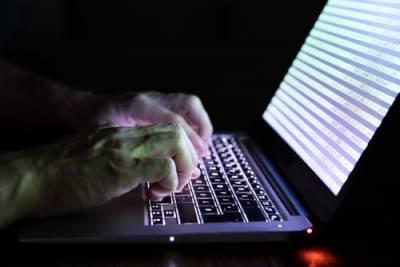What Are Connecticut Computer Crimes?
 Crime evolves right along with law enforcement, utilizing technology and its convenience to commit more offenses. In perhaps the last 30 years, computer-based crimes have become more and more common, creating a need for new laws and different types of enforcement. However, sometimes people with no criminal intent can get caught up in the dragnet. If you have been arrested and charged with a computer crime, you need an experienced Stamford criminal defense attorney to help get you through the process.
Crime evolves right along with law enforcement, utilizing technology and its convenience to commit more offenses. In perhaps the last 30 years, computer-based crimes have become more and more common, creating a need for new laws and different types of enforcement. However, sometimes people with no criminal intent can get caught up in the dragnet. If you have been arrested and charged with a computer crime, you need an experienced Stamford criminal defense attorney to help get you through the process.
Many Different Types
A general computer crime statute exists in Connecticut, covering several possible offenses, including misuse of a computer system, unauthorized access to a computer system, and intentional disruption or denial of computer services. However, computer crimes are somewhat unique in that these are very rarely charged as isolated offenses. They will often be charged in connection with another crime - for example, the use of a computer to harass or threaten another person is still technically a computer crime, despite the fact that harassment can be done without the use of technology.
While the laws surrounding many other offenses also may provide for a civil cause of action, no specific computer crime-related one exists in Connecticut law. If a person believes there may be grounds for a civil lawsuit against the alleged perpetrator, the recommended course of action is to bring suit under the overarching legal theory (for example, if a person was cyberbullied, they would likely bring a civil suit alleging harassment).
Charges Are Straightforward
Generally, in Connecticut, charges involving computer misuse will be assessed based on the amount of damage caused, or the cost of whatever property was stolen or damaged, depending on the situation in the individual case. For example, someone who commits a computer crime where the value of the property damaged (or the value of the services lost or misappropriated) exceeds $10,000 will be charged with computer crime in the first degree, which is a Class B felony. If the value of the property damaged was $1,000, the person would be charged with computer crime in the third degree, which is a Class D felony.
One thing to keep in mind is that there is a provision in Connecticut law that deals with situations in which it is too difficult to fix the amount of property damaged or misappropriated, or those in which for some reason, none of the standard sentencing guidelines should apply. The court has the right to impose a fine “not to exceed double” the defendant’s gain from the offense that they have been convicted of committing. This does not let someone off the hook, as such a fine can be substantial, but it is important to be aware that this is an option.
Do You Need Our Help? Call Today
Computers can make it easier than ever to commit crimes, but this does not mean that you will not be caught if you attempt to commit one. If you have been arrested and charged with computer crimes, you need a knowledgeable Stamford computer crime attorney to ensure that your rights are protected during trial. The Law Offices of Daniel P. Weiner have represented defendants from all walks of life and we will work hard to ensure that your case is handled fairly and appropriately. Call us at 203-348-5846 for a free consultation today.
Sources:
https://www.cga.ct.gov/current/pub/chap_952.htm#sec_53a-251
https://www.cga.ct.gov/current/pub/chap_952.htm#sec_53a-252







